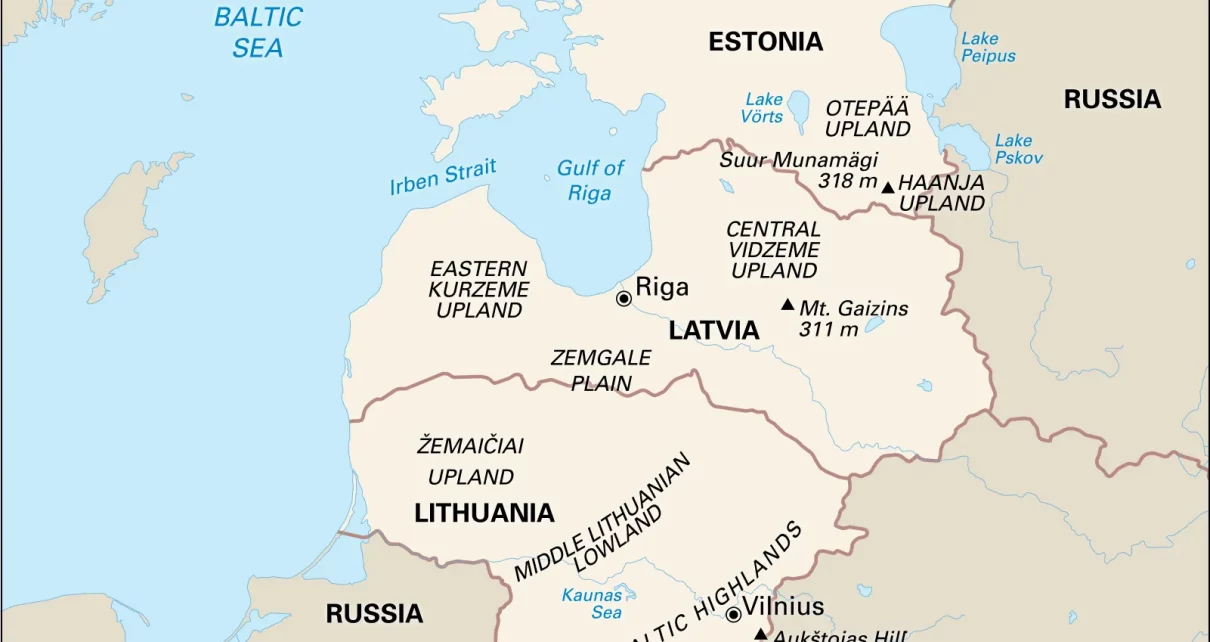In the northeastern region of Europe, on the eastern shores of the Baltic Sea, are three small but critical NATO member-states: Estonia, Latvia, and Lithuania. Referred to collectively as the Baltic states, these countries are members of the European Union and have played an important role in NATO since they joined the alliance in 2004. The current war in Ukraine has shed light on the importance of military preparedness in the Baltic states. In all three of these countries, this preparedness is being bolstered by the increasing participation of women in the armed forces.
Estonia is the northernmost Baltic state with a military of about 6,000 troops, roughly half of whom are conscripts. In Estonia, men aged 18–27 are drafted to serve 8 or 11 months in the military and can stay on if they desire to do so. Women are exempt from conscription, but may voluntarily enroll and then choose to enter military service professionally. In the summer of 2021, 46 Estonian women volunteered for the conscription service as part of the July “intake,” the most ever at one time. While this number may not seem big to some NATO peer countries, it is quite a few for a country of 1.3 million people. As of 2021 50% of the female conscripts decided to join the regular army, increasing the total of serving women in active service to 336 personnel or about 10% of all active positions. This is a number that the Estonian Defence Forces want to increase and have launched a campaign with the message: “Women, you are welcome in the Estonian Defence Forces!” Estonia’s Minister of Defence, Kalle Laanet, has said that women have the opportunity to complete conscript service and contribute to protecting the homeland by serving in any positions in the Estonian Defence Forces. Lannet also said there is no pay gap in the Estonian Defence Forces, and the average salary for servicepeople is maintained at a 30 percent higher level than the average salary in Estonia. This recruitment campaign, as well as the recent invasion of Ukraine, has led to 500 new applicants joining the Women’s Voluntary Defence Organization, part of Estonia’s state-run paramilitary defense, expanding the force to 3,200 members. The Estonian military appears to be embracing the shift in mindset among Estonia’s young women, and a desire to contribute to national defense is the principal motive for the growing number of women joining the Estonian Defence Forces.
In Lithuania, partial conscription for men has been in place since 2015. Given mounting security concerns in the region, there are now talks of drafting women into military compulsory service as well. As of right now, 3,800 men between 18-23 are called for military service each year, while women serve as volunteers. Currently, 12% of the military’s force is composed of women. At the beginning of this year Lithuania looked into plans for universal military drafts, and the Defense Ministry has recently conducted a feasibility study considering the option of conscripting women. In the study, it found two options, the first being conscription of about 6,100 young men per year ages 18-19 with a cost of 415 million euros. The second option is conscription of about 11,900 young men and women per year ages 18-19 with a cost of 1.5 billion euros if both young men and women were recruited, taking up more time and investment. A decision on military service models would be adopted only after “comprehensive discussions” with the public and the county’s institutions, the document read. Currently there are no artificial gender-based limitations in the Lithuanian military; women and men can enjoy equal opportunities to seek any position, receiving equal pay and social security. Hopefully conscription for women will not be needed, and more women join the military to keep the country safe.
Latvia is the only Baltic state that does not currently have conscription, which the country abolished in 2007. Women have been a part of the Lativan military for a long time but never held high-ranking positions until July 2020 when Ilze Žilde, Head of the United Staff of the National Armed Forces, was awarded the rank of colonel. There is hope that Žilde’s appointment will encourage more women to enlist, as many chose not to due to outdated stereotypes that have nothing to do with realities of today. As of right now, women make up 16% of Latvia’s military personnel. In an interview in August 2020, Žilde agreed that she is in a male-dominated profession, but argued that a woman does not have to contradict her essence to be there. Her work does not demand her to change anything substantial about herself, and she thinks that when it comes to professional life, sex should not matter. The important aspects to think about are the training, knowledge, ability to argue, prove, and think. Over time, Žilde believes that men and women will become equal, especially as society changes and is not as strict in separating the sexes concerning the work they do. She also thinks that any of her colleagues serving in the military have opportunities to ascend the ladder. Since Žilde’s appointment, the number of female recruits has increased. In 2021, women comprised 20% of all new recruits for the National Armed Forces with nearly 500 new soldiers being recruited.
The current war in Ukraine highlights the importance of maintaining strong militaries in the Baltic states. As a result of recruitment campaigns, advocacy, and a steady shift away from outdated stereotypes, it seems likely that the strength of women will play an increasingly vital role in the security of the Baltic region.
Image: A map of the Baltic Region countries, from Encyclopædia Britannica website.
Disclaimer: Any views or opinions expressed in articles are solely those of the authors and do not necessarily represent the views of the NATO Association of Canada.



